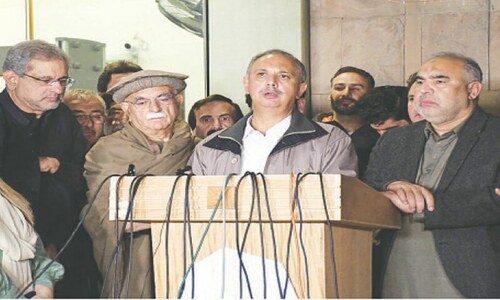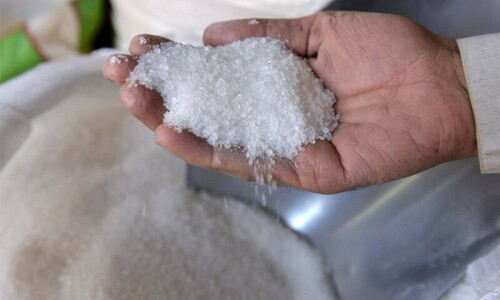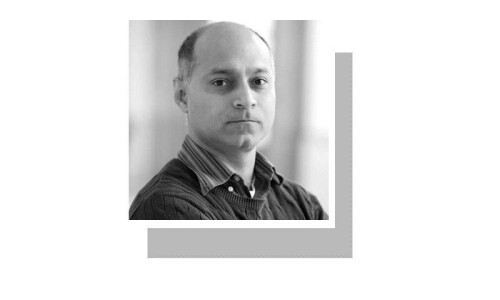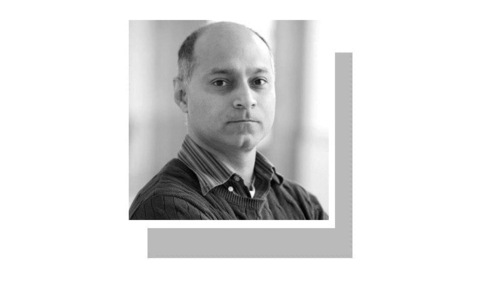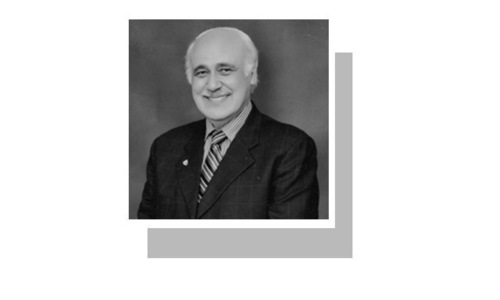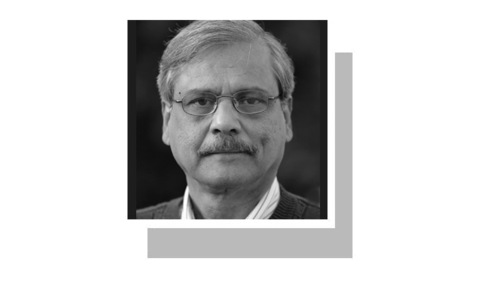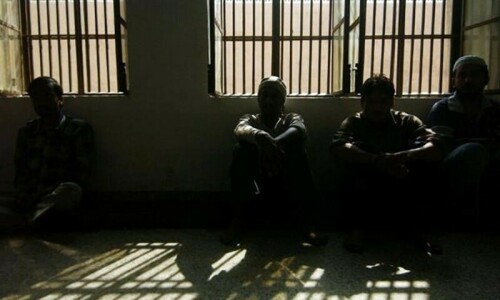ISLAMABAD and its twin city Rawalpindi continue to remain in the grip of frenzied political activities with various power-brokers on both sides of the divide being involved either in last-minute wheeling-dealing or making last-ditch efforts for a favourable outcome for their respective groups.
The grand show put up by the joint, elected force of the PPP, the PML-N and the ANP has certainly put President Pervez Musharraf on the defensive, yet little or no agreement has been reached on some of the key issues facing the future coalition partners.
Meanwhile, all does not look hunky-dory in the newly victorious groupings. So, the crisis remains.
With his opponents openly asking him to step down and even some well-wishers suggesting a kind of ‘graceful exit’, President Musharraf may well be under tremendous pressure. Yet signals emanating from the president’s camp indicate that despite the heavy odds, he is determined not to throw in the towel — at least not in the initial few rounds.
During the last few days, General Musharraf’s camp office in Rawalpindi — the former Army House — has seen a flurry of activity, particularly in the late evening. At some of these meetings, PML-Q bigwigs and a few remaining trusted aides of the president have reportedly been putting their heads together to discuss various options to counter a post-election onslaught by the winning parties.
For some of them, particularly the Chaudhrys of Gujrat, it’s simply a matter of their political survival. The president’s own position is no different: according to trusted sources, he knows full well that the slightest mishandling of the situation may push the so-called ‘moderates’ (read: the PPP) within the ‘future coalition’ towards the ‘radicals’ (the PML-N), who are quite clearly out for his blood.
Yet even most of the president’s well-wishers admit that his options are quite limited. Even if he manages to sail through the initial period of government-making, the difficulties and humiliation that the new situation may throw up -- in the form of statements in the parliament, laws and legislation -- could make life quite miserable for any honourable head of state.
So, what exactly are his options?
One, he steps down and leaves it to the newly-elected parliament to run the show. But that’s easier said than done. Those who know him say that his pride -- and his misplaced belief in his continued popularity -- may not allow him to take such a bold step.
Two, he lets events take their own course and acts only when the parliament tries to undermine his authority.
Three, he uses his trusted groupings among the newly-elected national and provincial assemblies to both block the passage of any constitutional amendments, and to create difficulties in the formation of stable governments in Sindh and Balochistan.
Some of these factors may have provided a breather of sorts for the leaders of the defeated PML-Q, as was reflected in the form of a relatively good turnout at the lunch arranged by Chaudhry Shujaat at his Islamabad residence. Nevertheless, some senior leaders in two of the three main parties of the ‘future coalition’ are not impressed. In their view, General Musharraf is now too weak to exert his authority in any significant way. And with the military leadership clearly exhibiting a neutral stance, the president’s wings have been clipped further. However, some of these leaders privately admit to what can be described as inner- and intra-party issues and conflicts. Some of these issues are trivial in nature but according to more than one source in the PPP and the PML-N, there are fundamental differences on a number of issues that may delay the formation of a stable coalition.
PML-N’s stance
For example, the PML-N’s insistence on supporting the government without sharing power in the cabinet has remained a major bone of contention. The reason -- or excuse -- offered by the PML-N leadership is also difficult to ignore. They are not prepared to attend the cabinet’s swearing-in ceremony, let alone participate as members of the cabinet, mainly on the grounds that they do not recognise General Musharraf as the legitimate head of state.
Meanwhile, Asif Zardari’s concern, as put by one of the top members of the PPP, is also quite understandable. In such a relationship, they view the PML-N as a coalition partner that would take the credit for all the good things and pass on the blame for all the follies or unpopular decisions made by the PPP-led government. So, not without reason has Mr Zardari been quoted as saying that he would like to see the PPP and the PML-N “sink or swim together”. Sources say that even after having put up a grand show in Islamabad, the two sides have been unable to resolve the matter.
One suggestion in terms of resolving the crisis was to ask President Musharraf to make himself unavailable at the time of the swearing-in ceremony of the prime minister and his cabinet by, say, going to Saudi Arabia to perform Umra. This could pave the way for the chairman of the Senate, in his capacity as the acting president, to conduct the ceremony. However, it is unclear whether this suggestion has formally been conveyed to the president, and even if it has, whether he could agree to a formula that could be viewed as undermining his authority, if not hurting his pride.
So, the problem of forming a stable government remains.
Other issues on which an agreement is yet to be reached range from the question of the MNAs-elect taking oath under the Constitution as amended by President Musharraf to, of course, the larger issue of the judiciary. The issue of the oath-taking may perhaps not become a major irritant and can be resolved on the basis of the Elahi Bakhsh Soomro formula in the 2002 assembly, when members agreed to the interpretation that the wordings of the members’ oath, as given in the Constitution, had not been amended and should therefore be acceptable to all sides.
The judicial crisis remains unresolved, however, and if some of the top legal minds of the country such as Fakhruddin G. Ebrahim have presented a formula that solves the problem without shaking up the existing system, it has certainly not been made public. All sides agree that the restoration of the deposed judiciary, particularly chief justice Chaudhry Iftikhar, amounts to bidding farewell to President Musharraf — which certainly amounts to a major shake-up.
Premier candidates
In the midst of all this intra-party discussion between the PPP and PML-N, there is inner-party debate within the PPP regarding their choice for prime minister. Contrary to the impression being given by Makhdoom Amin Fahim and his supporters, he is certainly not the only candidate. His seniority in the party is to his advantage but sources in the PPP say that there is clearly a trust-deficit between him and some of the real decision-makers in the party, including Asif Zardari. Meanwhile, a few other names have also been floated as possible nominees, including those of Shah Mehmood Qureshi and Chauhdry Ahmed Mukhtar, who has the credit of defeating the PML-Q chief, Chaudhry Shujaat Hussain. As a result, there has so far been no decision for the PM, or for the chief minister of Sindh.
With all these and many other issues still undecided -- and the bureaucracy waiting eagerly for the new government to come in and take some highly unpopular decisions such as raising the price of petroleum -- few amongst the real stakeholders would be keen to insist on the immediate summoning of the new National Assembly.


